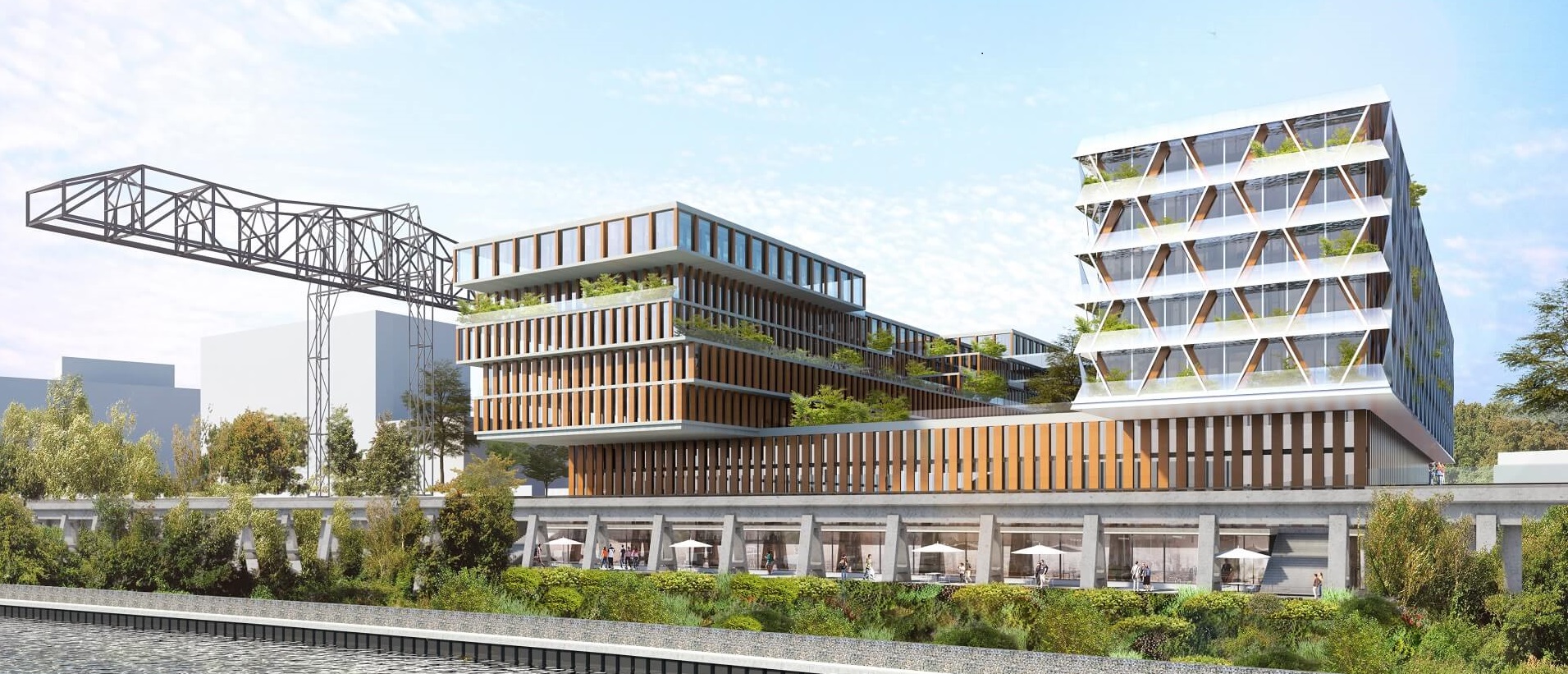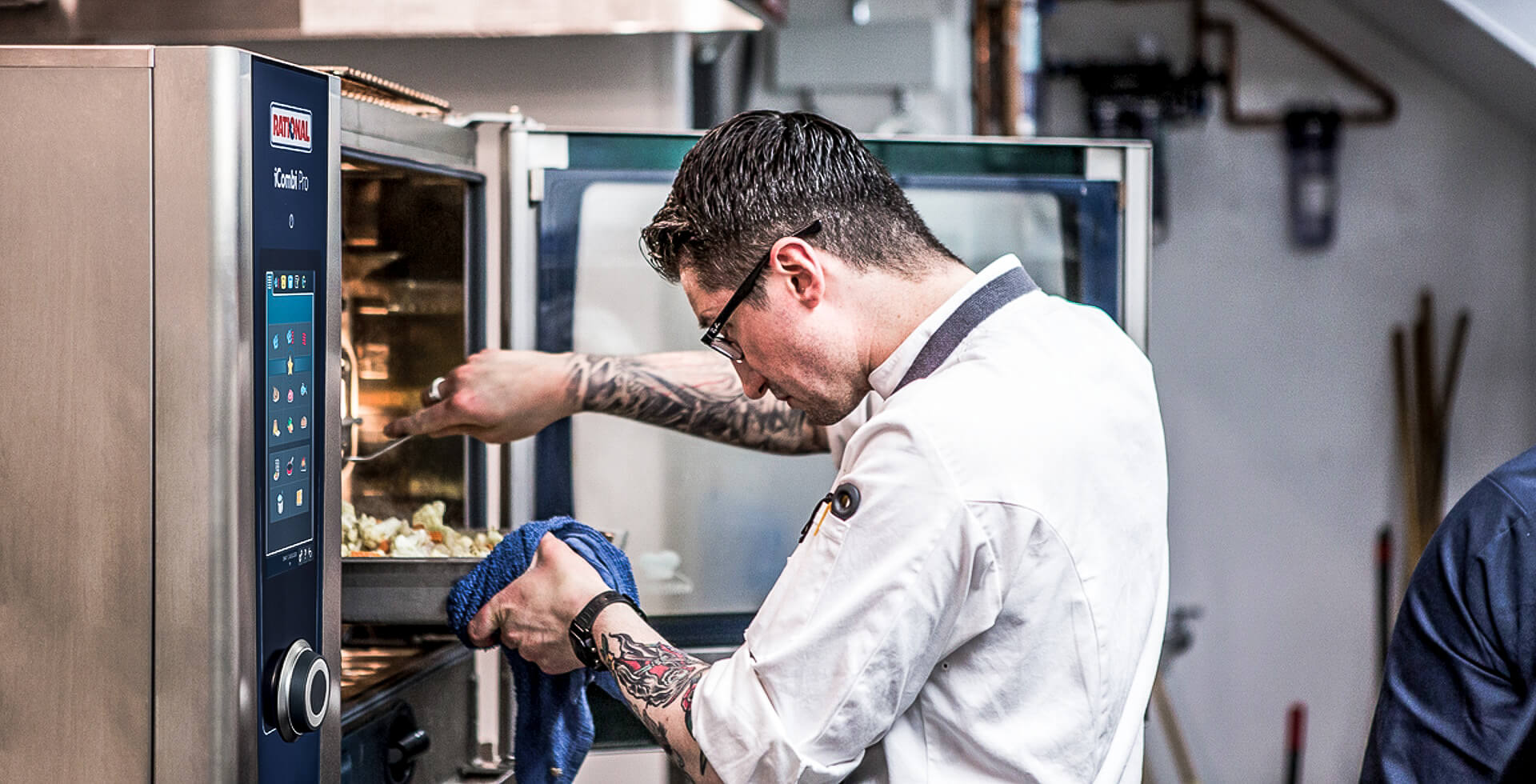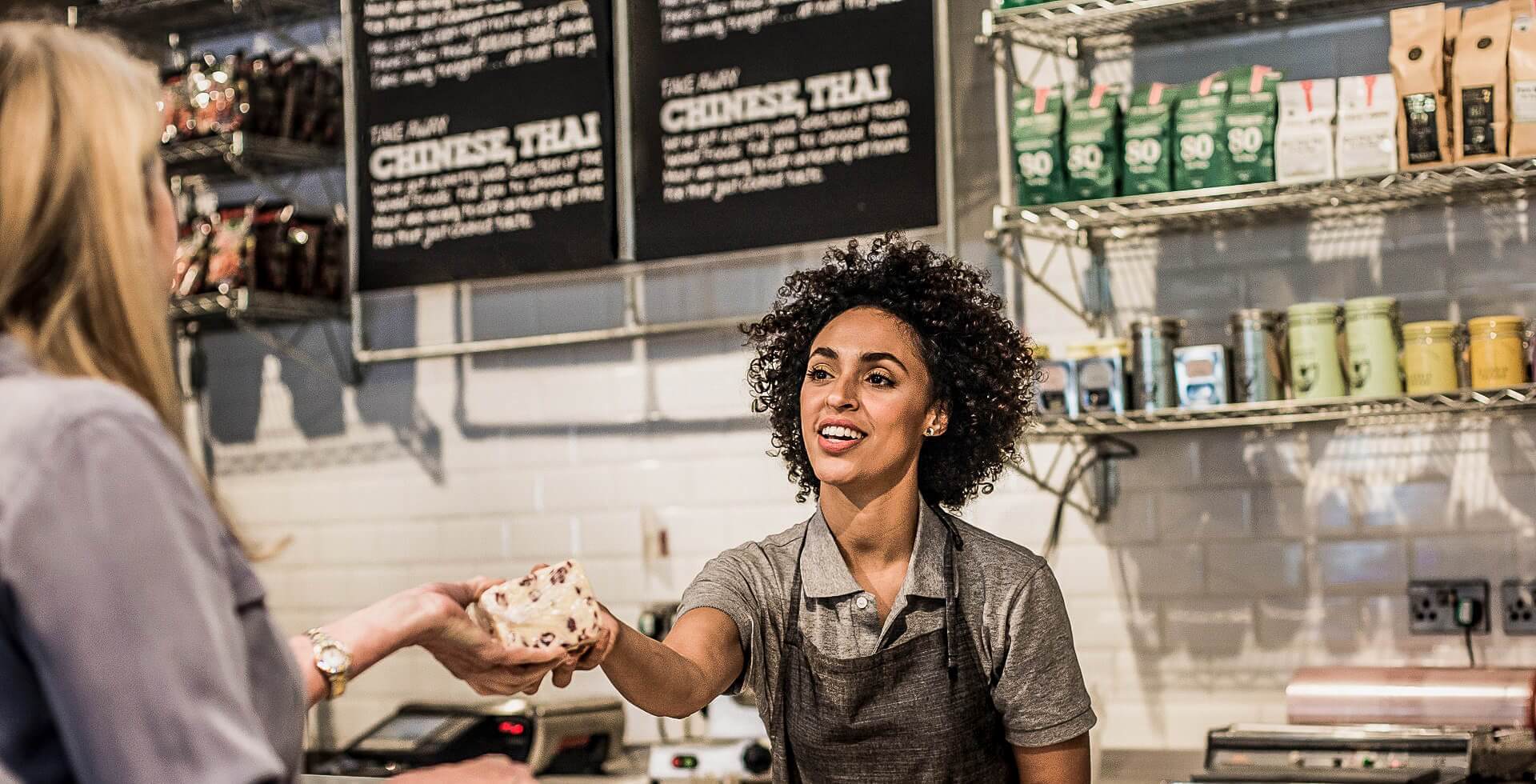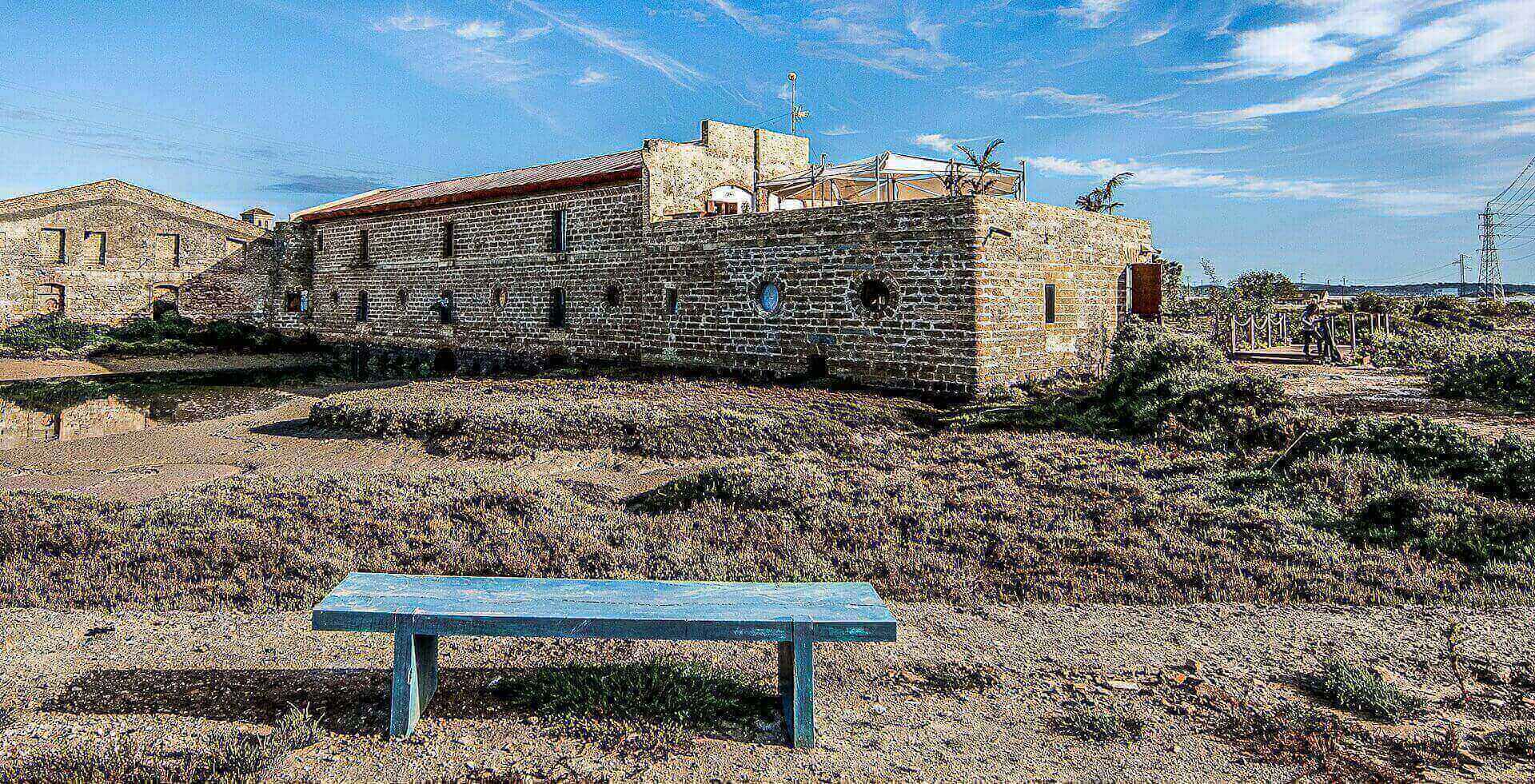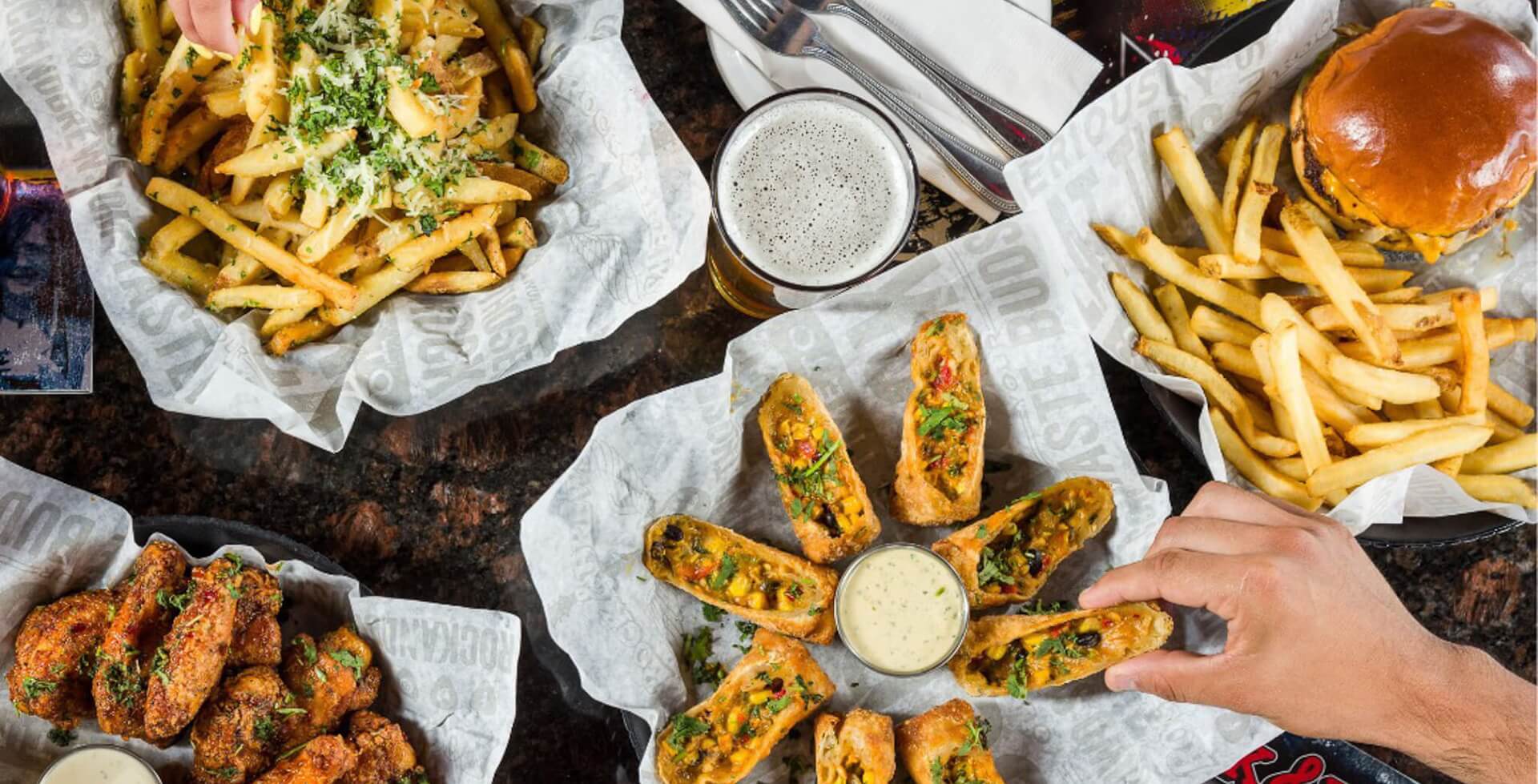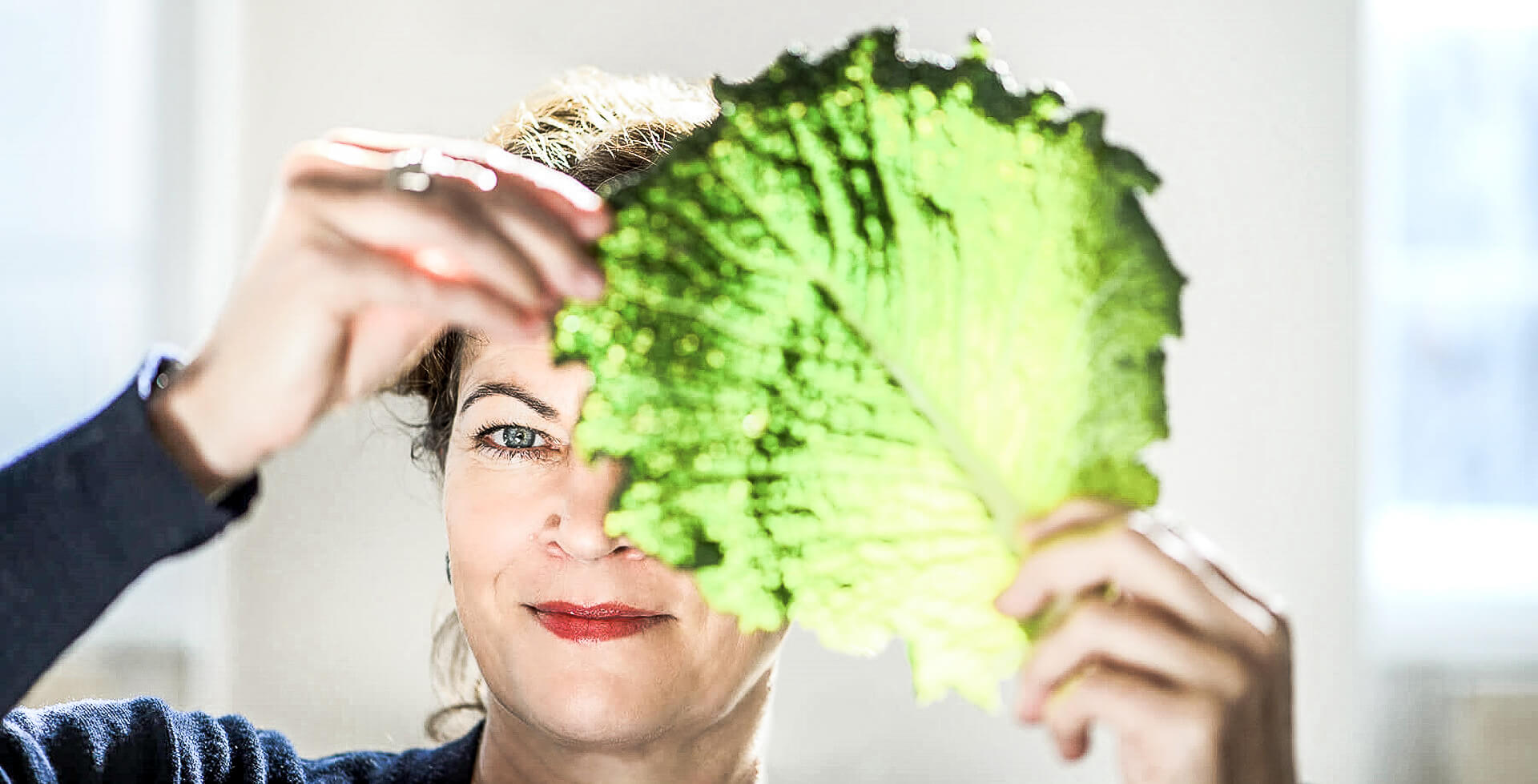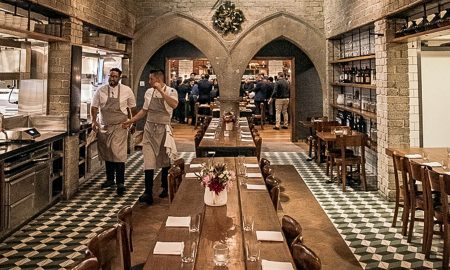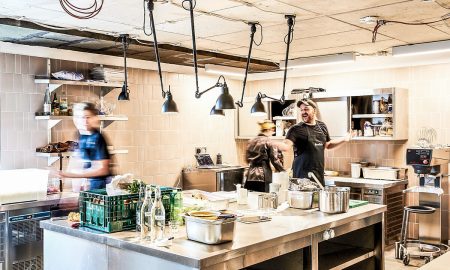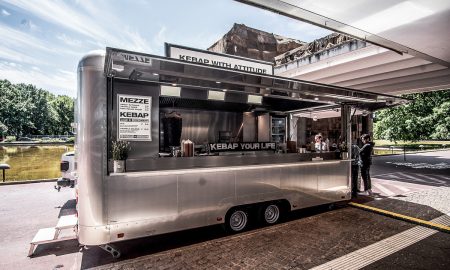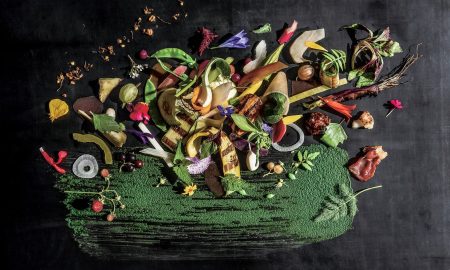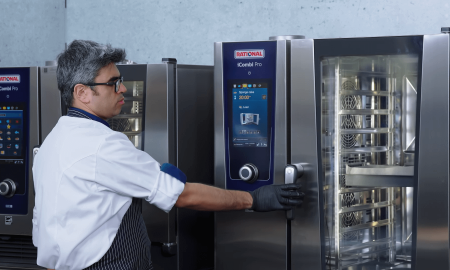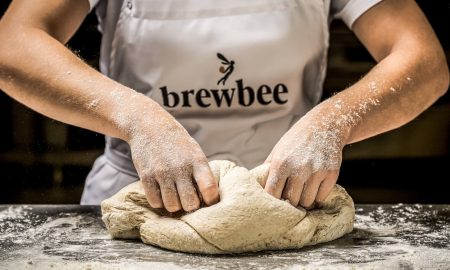“We need to address the challenging fact that we are aware food is responsible for the loss of biodiversity and one-third of CO2 emissions.” An agribusiness strategist, Jörg Reuter has been managing director of Artprojekt Nature & Nutrition GmbH, a subsidiary of the Berlin-based Artprojekt Group, since March of this year. With this post, the 52-year-old has taken on a task that is as challenging as it is extremely exciting: the contextual planning and curating of FoodCampus Berlin.
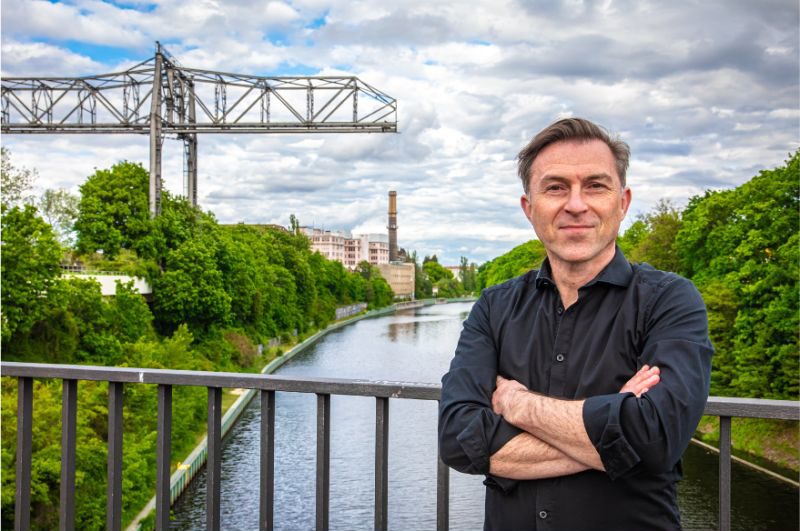
Jörg Reuter from FoodCampus Berlin; Image: Sascha Walz
FoodCampus seeks to be a place for the nutrition of tomorrow. The 180-million-euro project will be carried out on a 150,700-square-foot site located directly on the Teltow Canal in Berlin-Tempelhof. The groundbreaking ceremony is scheduled for spring 2022, followed by the grand opening in early 2024. “To work. To research. To produce. In one place.” Or so the motto goes. Alongside production areas and laboratories, which in some cases can be divided, the around 430,550 square feet of floor space will also feature test kitchens and other work platforms, as well as a rooftop farm, gastronomy facilities and areas for events. This will provide jobs for 1,000 people and create a community that is united by a single principle, namely awareness that the planetary health concept is vital.
Rethinking the future of food production
More plant-based and fewer animal-based ingredients, that’s what the planetary health diet recommends, which was developed two and a half years ago by the EAT-Lancet Commission, a group of international scientists. The goal is to provide the entire global population with a diet that is not only healthy, but also ecologically and socially acceptable. After all, our diet is at the root of many things. “We must change our eating habits to become healthier ourselves, but also to improve the wellbeing and health of the planet we live on. To achieve this, we need to consume less animal protein, among other things. However, how we eat does not first and foremost follow reason,” says Reuter.
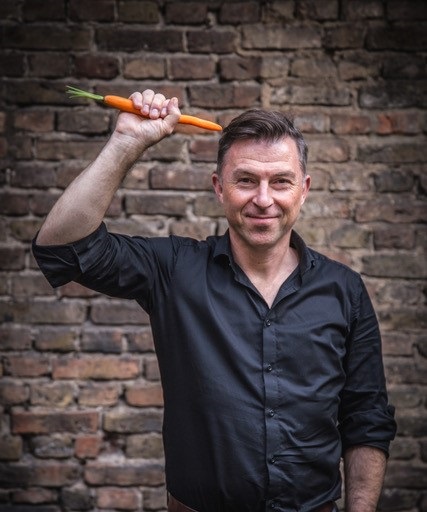
Rethinking nutrition – Jörg Reuter; Image: Sascha Walz
With its community spirit, this is exactly where FoodCampus Berlin steps in. “First of all, we want to bring together a diverse range of manufacturing and research companies from the food industry. As curator, diversity is important to me. My dream would be if we had, for example, good plant-based meat substitute production using raw materials from the region, in addition to cell-based approaches. To top it off, if we had an outstanding artisan salami maturing in the cellar, made from the best livestock, that would be perfect.” The company is already in dialogue with interested companies. Start-ups could benefit from the sharing model and accelerator programs, established food companies from the new knowledge created at FoodCampus Berlin.
“It’s definitely about sharing knowledge, not just space. Therefore, community management will ensure this place stays continually curated and managed. We also want to establish a food education academy for chefs and service personnel at FoodCampus.” In Germany, traditional culinary training is sometimes lagging behind actual needs, Reuter said. What’s more, he considers collaboration between chefs and startups to be a major opportunity for the future. “In the food industry, we need the expertise of ambitious chefs to take even greater advantage of culinary potential, especially when it comes to meat substitutes.”
Saving the world on a plate
Reuter has a degree in agricultural engineering. He is the founder of the strategy consultancy “Grüne Köpfe“; as a young man he worked on organic farms and milked sheep in the Pyrenean foothills. He has had the vision of taking organic food out of its niche for decades. There is an initial experience that sparked this goal. “On the first organic farm I worked at in my 20s, a larger farm in Lower Saxony, I once spent an entire Friday weeding carrots by hand. The next day I had to leave at four in the morning and take the vegetables to the farmer’s market – and my first customer complained that Demeter carrots were so expensive.” Reuter laughs. “Sure, the customer has no way of knowing how much work went into it. That’s why later, as a strategy consultant, I always asked myself first and foremost, How can I ensure good food gets the appreciation it deserves?”
This is another example of where chefs are in demand, according to Reuter. “As I see it, when it comes to saving the world on a plate, chefs play an important social role. How do you get people to move vegetables to the center of their plate? Culturally, this is alien to many people and their cooking skills are limited. Professional chefs can demonstrate that this is possible, that you won’t be missing anything, meat or substitutes, if you just know the right dishes to make.”
Sieh dir diesen Beitrag auf Instagram an
Food is also culinary heritage and therefore, FoodCampus will also address another topic alongside nature conservation and healthy nutrition, namely the tension between food technology and food tradition. This is because the yearning for authenticity and wholesomeness actually shapes the consumer behavior of many people. However, from a global perspective, we must bid farewell to nostalgic notions. Scientific innovations, including those developed in the laboratory, are indispensable in the food sector, and by no means only with regard to meat substitutes. “Technology is one thing, but it also has to work in culinary terms. What’s exciting is the attempt to draw synergies from seeming opposites,” says Reuter.
The planned collaboration with “Landgut Köllnitz” “to bring food startups down to earth and connect them with farmers” can be seen as one such attempt. The Brandenburg traditional fishery Köllnitz has existed for 800 years, and is currently augmented through organic farming by Artprojekt Nature & Nutrition. Additional Berlin-Brandenburg projects will follow. “We need to rethink this supply axis. For example, we have such enormous market success with substitute products in the dairy and meat sectors, with oat and pea milk, and so on. The next logical step we have to take is to stop sourcing raw materials from around the world and start using Brandenburg organic oats.”
FoodCampus lighthouse project
Should the FoodCampus rooftop farm be a champion for regionalism as well? “To be honest, I don’t necessarily believe in the economic viability of urban farming concepts,” Reuter says. “There are too many conflicting interests in the city for that, and we also need the rooftops for energy.” For the rooftop farm, he can imagine about a quarter of the seedling production going out to farms and three-quarters of the yield allocated to the future FoodCampus cafeteria. “We believe such a spectacular location like FoodCampus Berlin calls for a spectacular cafeteria. You should be able to see everything that’s being produced or developed on campus there.”
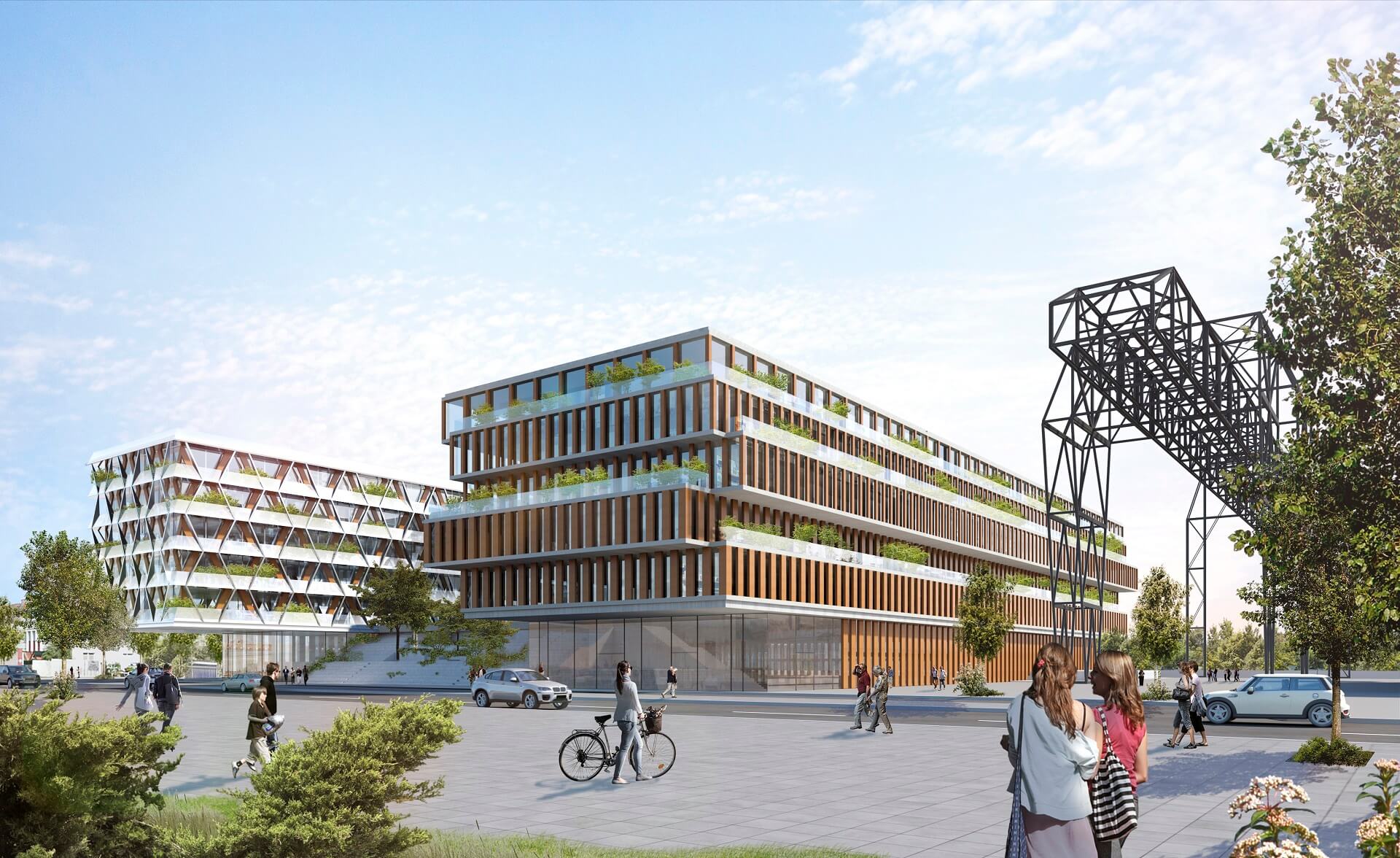
FoodCampus Berlin – Future platform for nutrition and climate protection. To work. To research. To produce. In one place. In the middle of Berlin. View in southeast direction from Teilestraße. Image: TCHOBAN-VOSS Architects
After all, the showcase project is also about making things more visible. You will be able to see parts of the production, while a virtual FoodCampus will increase the reach. Needless to say, the location in the middle of Berlin, just four miles as the crow flies from the Brandenburg Gate, was not chosen at random. In the last 30 or 40 years, food production has become a bit of a black box, Reuter says. It was time to reinstate it prominently in the city. “We consider FoodCampus to be a Germany-wide – perhaps even a Europe or worldwide project – but we have consciously chosen to be in Berlin. This is because Berlin is truly a magnet that attracts talent from all over the world.”
Real estate, hotel and restaurant industry, nature conservation and healthy food Artprojekt is an ecosystem of different companies and divisions that form a whole. The group plans all of its real estate projects from a sustainable and ecological point of view, and runs some of them itself, including restaurants and hotels. These businesses operate according to the 70/70 principle. This means 70 percent of the products for processing come from within a 70-kilometer radius. Artprojekt has just won the ‘Made in Berlin’ Entrepreneur Award.


